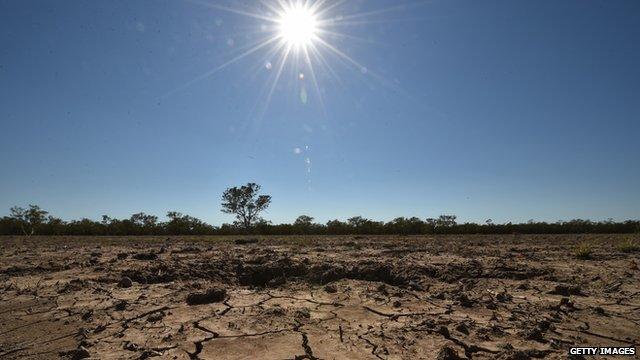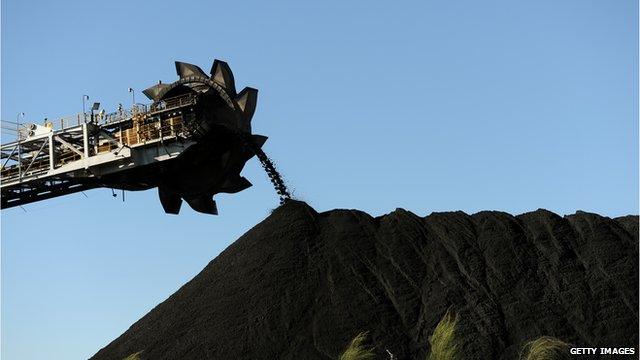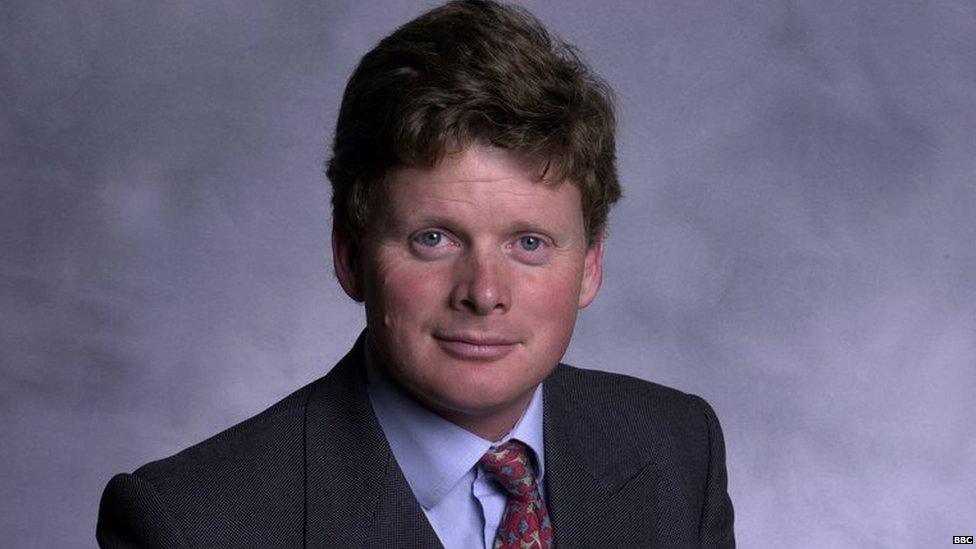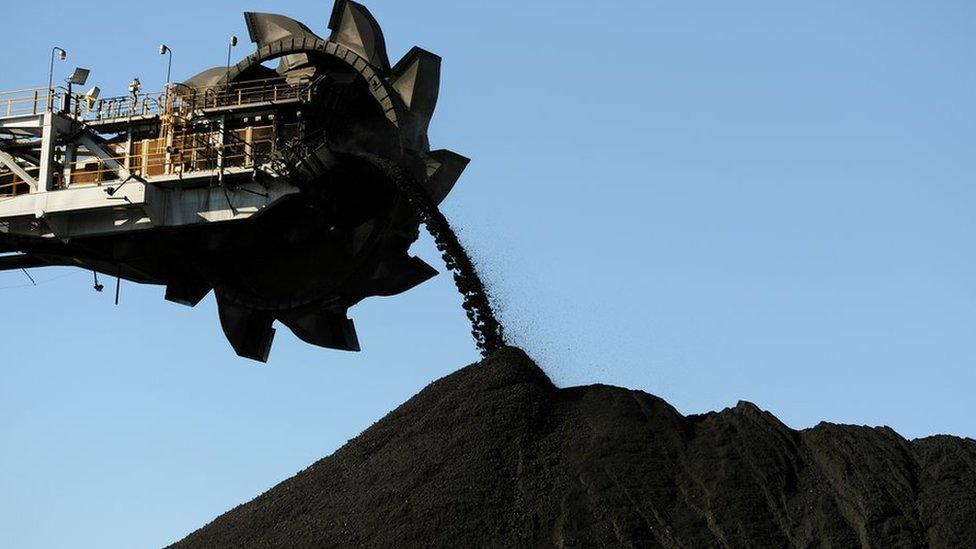Australia carbon plan sends shudder through neighbours
- Published
- comments

Drought in Australia has been made worse by climate change according to researchers
The remnants of burnt carbon have been causing Australians all over the world to hang their heads in shame in recent days.
But the painful loss of the Ashes, cricket's most ridiculous trophy, to England, isn't the only CO2 related problem facing the Lucky Country.
The Australian government's announcement of an emissions reduction target for 2030 has been met with the international political equivalent of "meh".
Prime Minister Tony Abbott said his plan, to cut carbon by at least 26% of 2005 levels by 2030, was "fairly and squarely in the middle of comparable economies".
Err, not really.
Australia has chosen to use 2005 as its base year, coincidentally the year its emissions peaked. But if you make a comparison with 1990 as a baseline year, a clearer picture emerges.
Figures from the Australian think tank, the Climate Institute, external show that Mr Abbott's new plan will cut emissions by 20% of 1990 levels by 2030. The US on the same basis will cut by 32%, the EU by 40% - and the UK will have reduced carbon dioxide by 66%.
The only countries to do less than Australia in this analysis, are Canada and New Zealand.
Commentators were quick to put the boot in, external to the Abbott plan.
The message from Australia's neighbours in the Pacific was even stronger.

Australia is one of the world's biggest coal exporters
"Australia's weak target is another serious blow to its international reputation," said Tony de Brum, Foreign Minister for the Marshall Islands, who argued that the plan sent a serious shudder through the Pacific.
"If the rest of the world followed Australia's lead, the Great Barrier Reef would disappear. So would my country, and the other vulnerable atoll nations on Australia's doorstep."
Given the Abbott government's track record on repealing the country's carbon tax, external and lowering its renewable energy target, their low ball carbon target is hardly a surprise.
Despite the poor reception for the plan, there is a slight silver lining to the dark carbon clouds.
Australia's commitment means that a new global compact on climate change is more likely to be agreed this December at a crucial UN meeting in Paris.
Anyone remember the Kyoto Protocol? The world's first significant attempt to rein in carbon emissions was signed, amid fanfare, back in 1997 and came into force in 2005.
But crucially the treaty was rejected by the US and Australia, initially. It also didn't include restrictions on CO2 from China and all other developing nations.
Hill of beans
Right now, four months ahead of Paris, the US , EU, China, Australia and around 50 other countries, representing over 60% of emissions, external, have pledged to rein in their carbon as part of a new global compact on climate change.
Critics will say, rightly, that it doesn't amount to a hill of methane-infused beans in keeping global warming below 2C, external, the accepted threshold for dangerous consequences.
Negotiators are aware of this - and are already seeking to ensure that a deal in Paris will have a mechanism to review and ratchet up contributions of countries like Australia.
UK climate secretary Amber Rudd recently outlined her preference for this idea, when questioned by the House of Commons Energy and Climate Change Committee.
"We want 194 countries signed up to keeping two degrees within reach," Ms Rudd told the MPs.
"And then, on top of that, I would like to see five-year reviews in which there will be an aggregate look at how we're doing."
And who knows, if public opinion in Australia is to be believed, external, there seems to be greater appetite for action on carbon than Mr Abbott has pledged.
Climate change could become the big issue in the next general election down under. And where Australia leads, the world may follow.
Follow Matt on Twitter, external.
- Published23 July 2015

- Published9 August 2015

- Published30 May 2011
